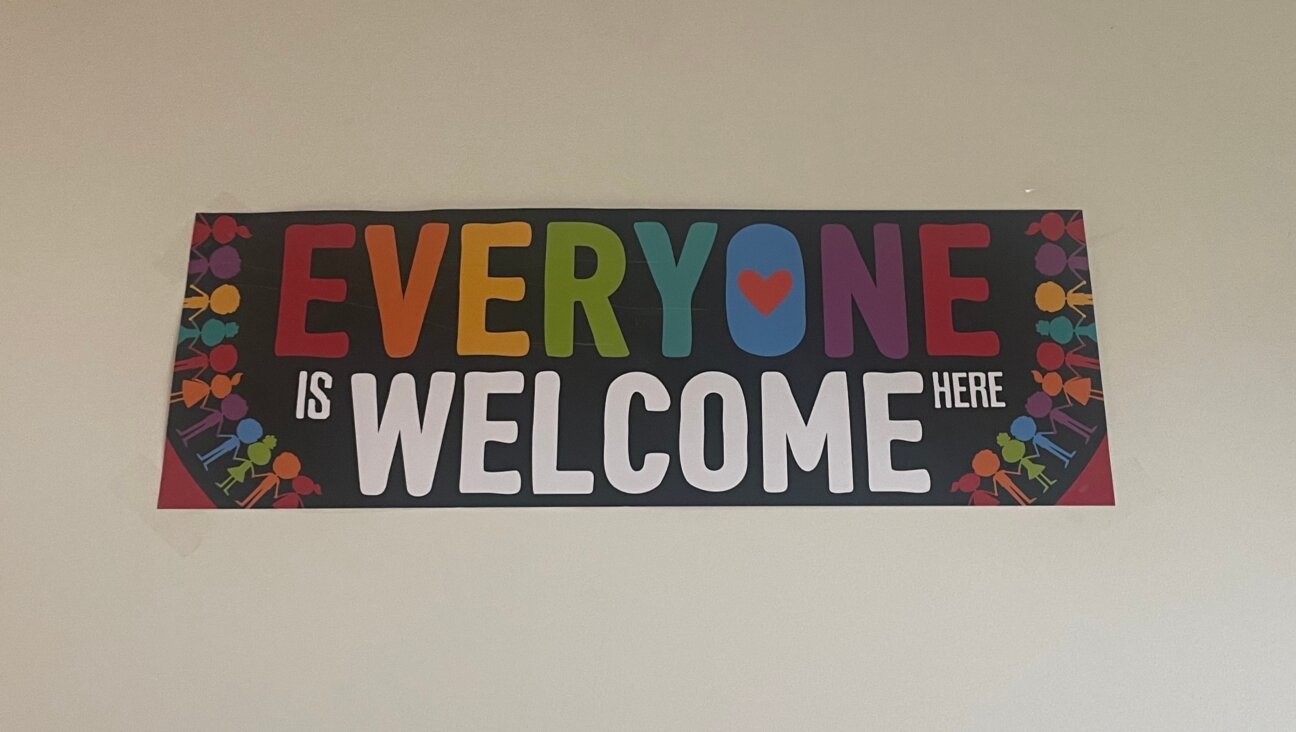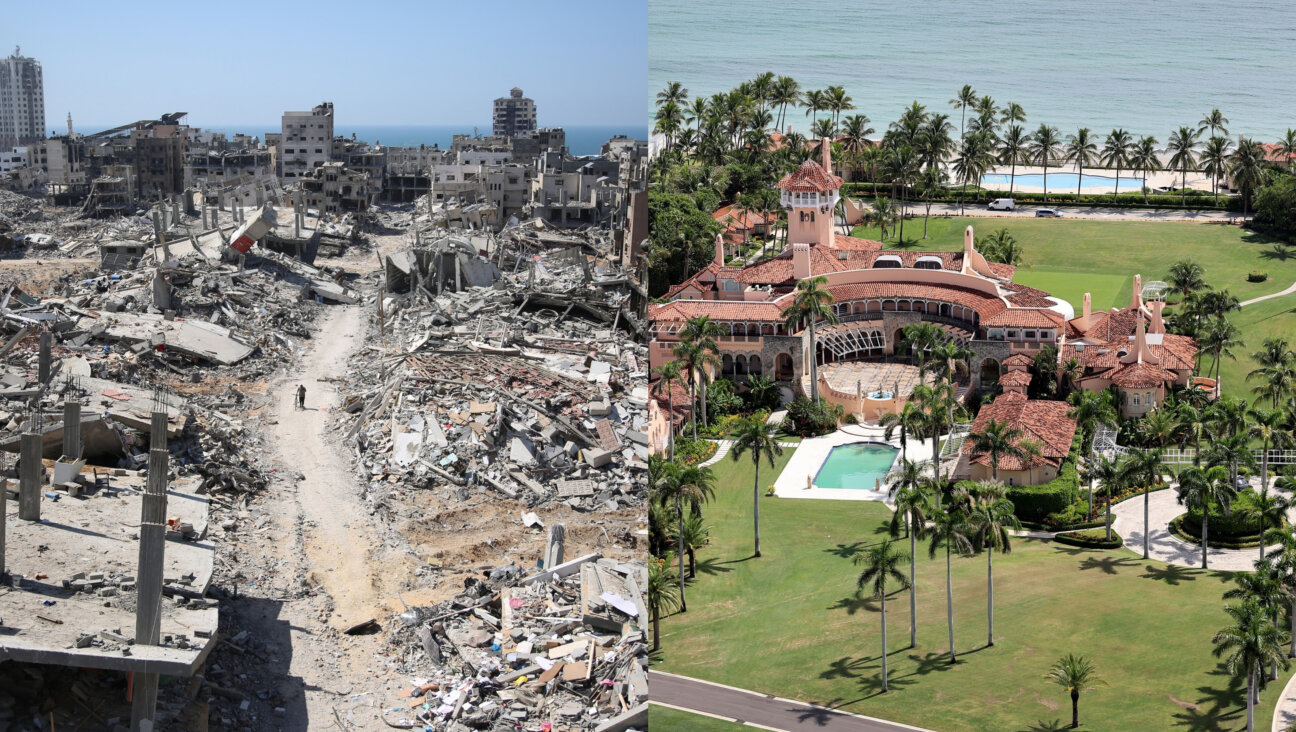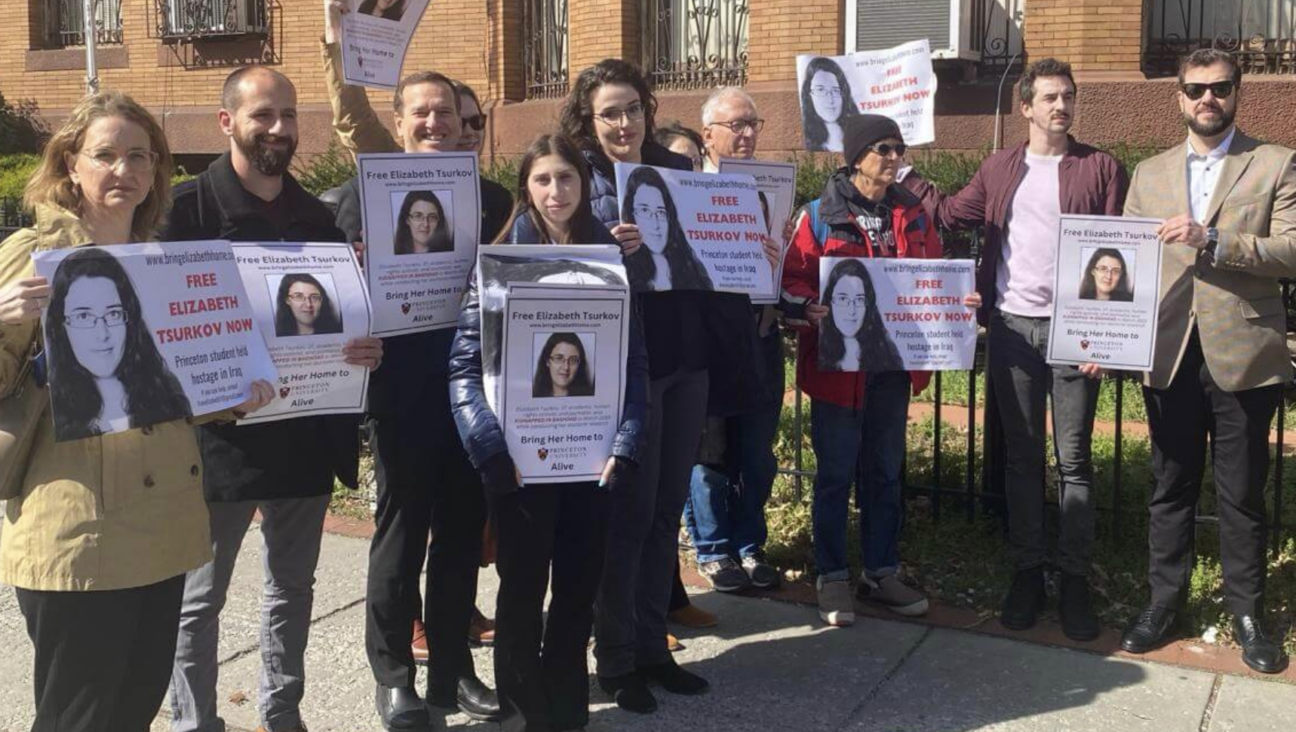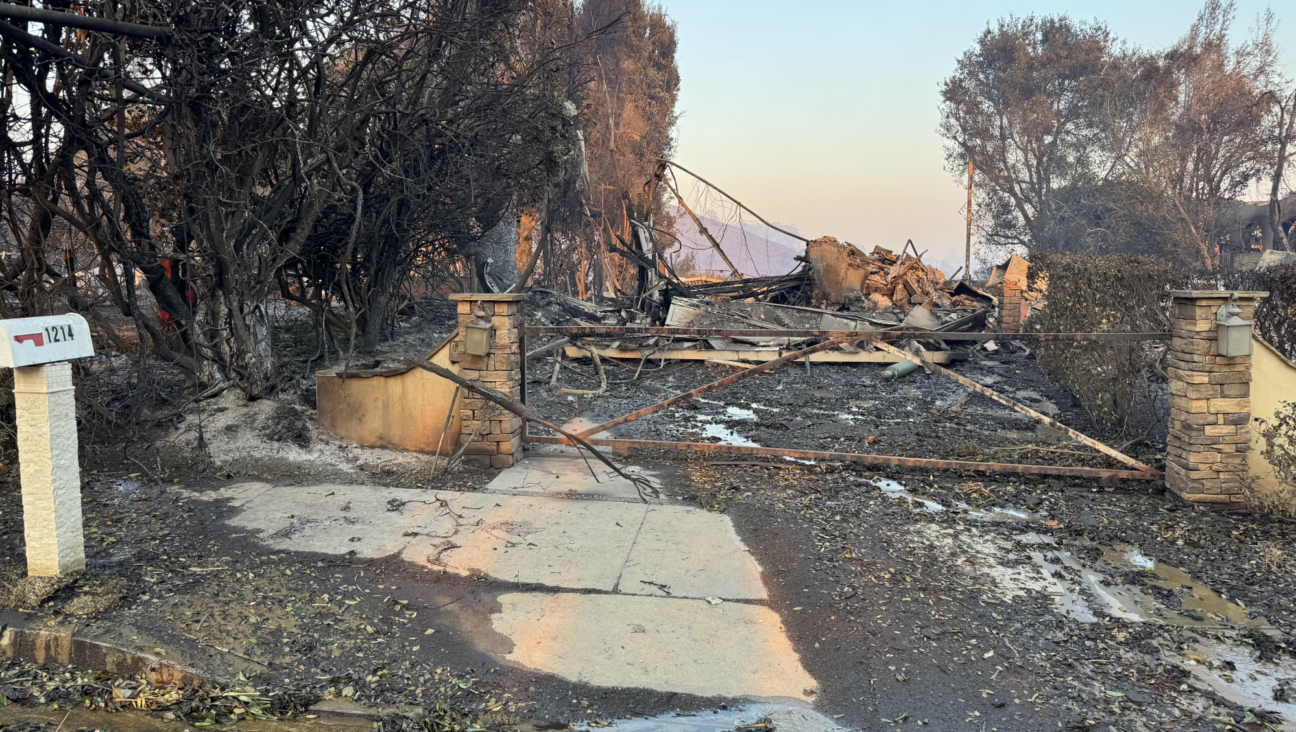‘Ashamed at how my heart has shrunk’: Takeaways from 10 days of reporting in Israel
11 weeks into a war with no credible endgame, hopefully 2024 brings us a little more light
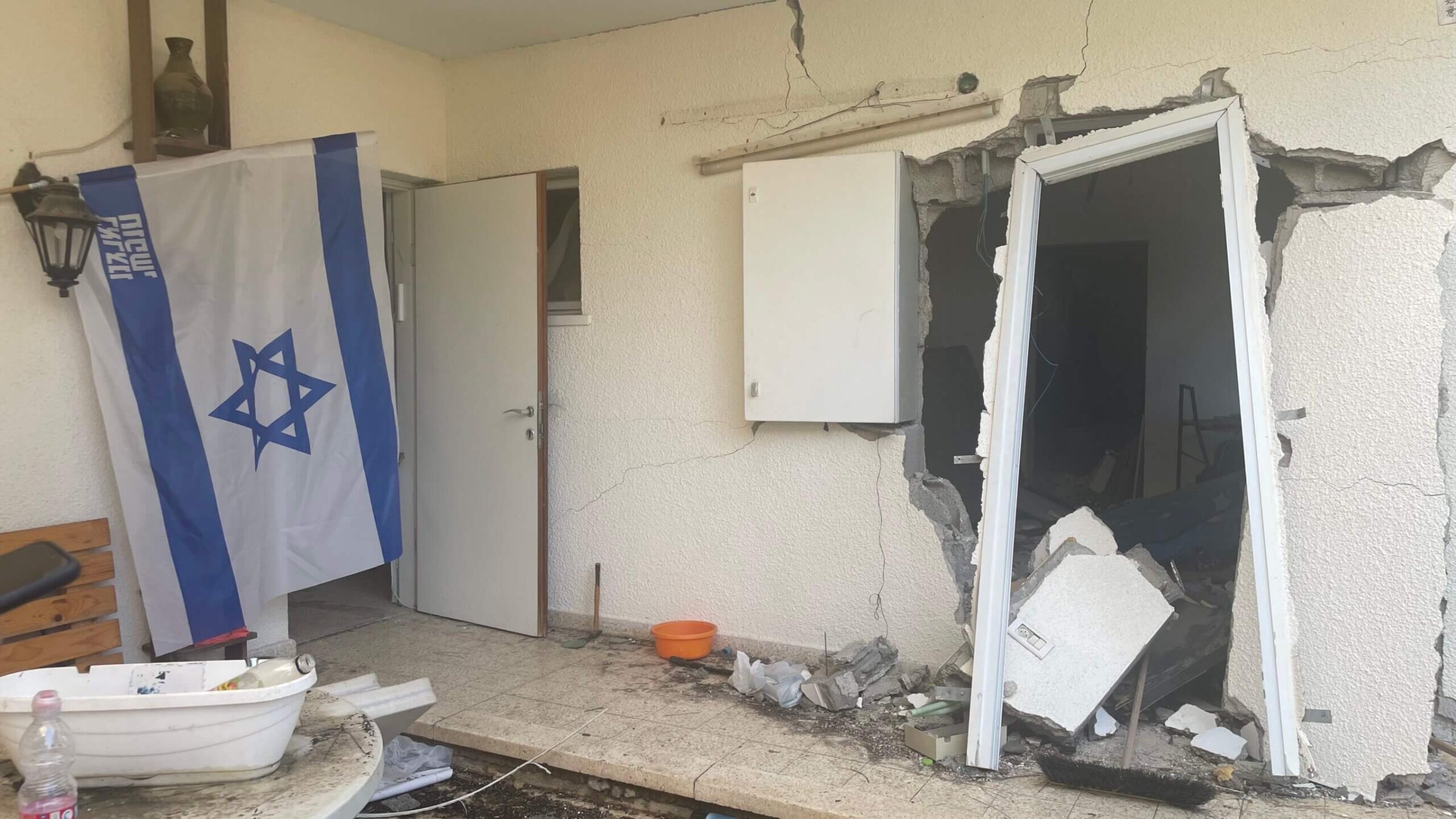
A house destroyed by Hamas terrorists at Kibbutz Nir Oz. Photo by Jodi Rudoren
I packed as much as possible into my 10 days of reporting in Israel. I visited a kibbutz where a quarter of the residents where killed or kidnapped on Oct. 7 and a hotel where survivors of the massacre are staying. I went to Hostages Square and to a kitchen of volunteers supporting the war effort.
I interviewed political, diplomatic, religious and coexistence experts; spent time with the families of hostages and deployed soldiers; toured West Bank settlement construction; traded notes with fellow journalists; prayed in synagogues and shared in Shabbat meals.
But the most telling moment came as I was walking to pick up laundry one night with my good friend Rabbi Levi Weiman-Kelman. “I’m ashamed at how my heart has shrunk,” he told me.
In the dozen days since I’ve been back, it is this comment, more than anything else, that captures the mood of Israeli Jews as this horrible war grinds through its third month. It’s what separates the liberal Zionists in the U.S. — who are struggling to balance grave concern about the staggering death toll in Gaza with outrage, anguish and fear over Oct. 7 — from even the far left in Jewish Israel, where most are stuck in the raw pain of that awful day.
“I think on October 7 all of our hearts were broken, and since then everyone is just trying to cope with so much, and we’re limited human beings,” explained Weiman-Kelman, who made aliyah in the 1970s and has been active in Rabbis for Human Rights and voted for the leftist Meretz Party ever since.
“The suffering in Gaza is real. I definitely don’t wish anyone in Gaza harm, but I just don’t feel I have the emotional capacity to contain all this,” he continued. “This is the ultimate Hamas victory. They made me a worse person, they made me a less compassionate person. I’m just so angry about that.”
Shortly before I left for Israel on Nov. 28, a very wise Forward supporter asked a sharp question at one of our events about what he saw as the lack of a “credible endgame” for Israel’s war against Hamas in Gaza. I did not have a good answer, and decided to ask everyone I could think of for their answers. Spoiler alert: It was extremely unsatisfying.
“Tomorrow’s coming — and Israelis aren’t there,” Rabbi Donniel Hartman, president of Jerusalem’s Shalom Hartman Institute, told a group of visiting American rabbis that I embedded with for a day. “In morality of war, it’s hard to say, but there is a time to kill, and we Israelis are now in the time to kill.”
A government official who was only able to speak on the condition of anonymity walked me through a thoughtful framework for the military operation’s legitimacy over breakfast one morning. He is a center-left type who has been involved in the peace process for 30 years and said “endgame” talk was, in a word, silly right now.
“We need to move from an argument of who the land belongs to, to a story about ‘we both belong to the land,’” he said, and “a statement that Islam is not at war with Jews and Judaism.”
Poetic. True. But not the kind of practical policy proposal we are all yearning for right now.
Two polls out this week put into stark relief a divide I fear will only keep growing. The New York Times found that 44% of voters want Israel to stop its military campaign in Gaza to protect against civilian casualties, while the Israel Democracy Institute said 81% of Jewish Israelis think the suffering of the Palestinian population should not be taken into account in military planning.
That Israel poll also showed that two-thirds of respondents — Jews and Arabs — do not think the government has a clear plan for after the war.
“There’s a piece of territory called ‘Gaza Strip’ and they don’t control it,” Yohanan Plesner, the head of the Democracy Institute, said when I asked for his credible endgame. “You don’t kill the idea,” he acknowledged of Hamas. “You don’t kill all the leaders, because they’ll get away.
“There’s going to be us,” Plesner continued, meaning an Israeli security presence, and “some international force — I’m very skeptical about boots on the ground — and some Palestinian civic thing we can nurture.”
Plesner, 51, is a London-born, Harvard-educated former member of Knesset from the center-left Kadima party, and a very proud veteran of the elite Sayeret Matkal unit of the Israel Defense Forces. Over a dinner of grilled fish washed down with beer, he kept coming back to tales of how Israeli reservists, many of whom had been leading anti-government protests all year, sprung into action to battle against the Hamas terrorists who infiltrated Israel Oct. 7.
The day-after scenario he is clearest about is that Israelis want elections after the war. He expects Prime Minister Benjamin Netanyahu to be ousted and replaced with another right-of-center leader like former military chief Benny Gantz or perhaps Plesner’s Sayeret Matkal buddy, Naftali Bennett, who had a brief term as premier last year.
“It’s like a tribe that’s in a survival struggle,” Plesner said of the Israeli electorate. “You want the head of the tribe to be able to kill the enemy.”
Hours before dinner with Plesner I’d had coffee at Jerusalem’s Inbal Hotel with Mohammed Darawshe, a Palestinian citizen of Israel who is director of strategy at Givat Haviva, which does coexistence work. This was in many ways the most depressing conversation of my tour.
Darawshe’s 23-year-old cousin Awad, a paramedic, was among the 36 Arab citizens killed on Oct. 7 — another nine were kidnapped — but he said Jewish Israelis “don’t allow us to have a proper role as victims” because “there’s a kind of delegitimization of the pain of Arab citizens in the sea of Jewish pain.”
Arab Israelis have generally condemned the Oct. 7 attacks, which Darawshe said “positioned us in a place that is closer to the Israeli perspective.”
Certainly closer than they were from, say, 1948 until Oct. 6, he noted. But this was short-lived. “Starting a week later, we do not understand,” Darawshe said. “There’s a feeling that this has gone too far. The Israeli response is excessive use of force.”
And it’s not just the death toll in Gaza that the Hamas-run health ministry now says tops 20,000. Darawshe pointed to the hundreds of Israelis, including some Jewish leftists, who have been arrested for social media posts, the vast majority of which he said “did not cross any legal red line” but perhaps “were not the right music for Jewish ears today.”
He told me that 20% of Palestinian citizens slated to start at Israeli universities this Sunday have dropped out, and 10% of Arabs and Jews teaching in the other sector’s schools have stopped going to work. Darawshe’s son, a pharmacist, had to sneak out the back door of one of his stores because three Jews came looking to beat him up. A cousin who wears a hijab was stopped at a traffic light in Haifa with her husband and four guys who were in a nearby car got out and started banging on the windows.
“They had to go through the red light to escape,” he told me. “When I came to the hotel I made sure I got permission to park in the garage. When I leave the hotel, I’m afraid I will be recognized as an Arab.”
Yossi Klein Halevi, an American-Israeli author and journalist who has done extensive work with Muslims for years through the Hartman Institute, told that group of visiting American rabbis I hung out with that “the last thing I can think about today is the Palestinians and the morning after.”
“I need you to speak with a moral voice about the Palestinians, because I can’t,” he told us. “I don’t have the words for it anymore.”
It’s probably not surprising that there are Israeli flags everywhere in Israel now — on cars and apartment balconies, flashing on electronic billboards and strung across roadways, propped above the tables many restaurants are purposely leaving empty in honor of the hostages held in Gaza.
Equally ubiquitous are bumper stickers and banners blaring “Biyachad Ninatzayach,” Hebrew for “Together We Will Win.” There’s also plenty of “F*ck Hamas,” including on the freshly painted fingernails of the very lefty digital creator Hallel Silverman-Abramowitz. On the highway between Jerusalem and Tel Aviv I passed a trio of signs saying “Mechdal,” Hebrew for neglect; it might be the only protest poster I saw over 10 days.
What’s even more striking is how the war shows up everywhere and in everything. It’s a small country, so the 1,200 killed, 240 kidnapped and 300,000 deployed reservists really do touch most people. Plus 139 Israeli soldiers killed in the ground operation in Gaza so far; one friend of mine has been to 13 of their funerals.
I went to Shabbat services at Shira Hadasha, the feminist Orthodox shul in Jerusalem’s Baka district with another friend, Avital Hochstein, a rabbi and Talmud scholar. The woman we sat next to has a newlywed daughter whose husband “is in a tank in Gaza and hasn’t taken his boots off in three weeks,” Avital whispered. The woman calling people up to the Torah, she added, has a sister who works in technology and was called back to the army to help identify women’s bodies.
Kids are back in school — sort of; classes whose teachers have been called up for the war might just not meet. Friends are working, but also spending at least a day a week picking produce on Israeli farms. Tourism is dead. Experts estimate the war is costing the Israeli economy 1 billion shekels — $270 million — every day.
Rabbi Weiman-Kelman, he of the shrunken heart, said the government’s apparent lack of a workable long-term strategy keeps him up at night. And that he is glad that Rabbis for Human Rights has continued to support Palestinian farmers in the occupied West Bank and conducted interfaith candle-lightings during Hanukkah, but that he has not reached out to his own Palestinian contacts because “I just can’t allow myself to feel even more pain.”
All his liberal Jewish friends in the United States are calling for a cease-fire and are “shocked at how right-wing I’ve become,” he told me.
“I don’t feel like I became right wing,” Levi added. “I’m still in favor of a two-state solution and living in peace with Palestinians. We all just feel so paralyzed.”
So here we are, 11 weeks into a war with no credible endgame, no partners for peace, and so very many souls suffering so very deeply. I just hope 2024 brings us a little more light.
A message from our Publisher & CEO Rachel Fishman Feddersen

I hope you appreciated this article. Before you go, I’d like to ask you to please support the Forward’s award-winning, nonprofit journalism so that we can be prepared for whatever news 2025 brings.
At a time when other newsrooms are closing or cutting back, the Forward has removed its paywall and invested additional resources to report on the ground from Israel and around the U.S. on the impact of the war, rising antisemitism and polarized discourse.
Readers like you make it all possible. Support our work by becoming a Forward Member and connect with our journalism and your community.
— Rachel Fishman Feddersen, Publisher and CEO







